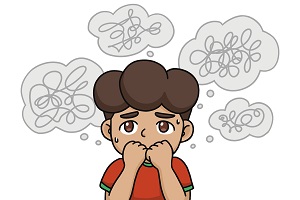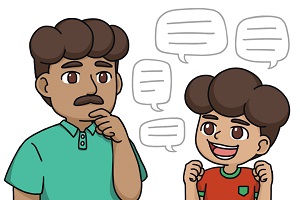Other areas of development
Explore the topics below to find out what to expect and how to help your child with other aspects of their development and learning.
These webpages and online materials have been developed to support families of children who experience difficulties with attention, regulation, and concentration. This includes children diagnosed with attention deficit hyperactive disorder (ADHD).
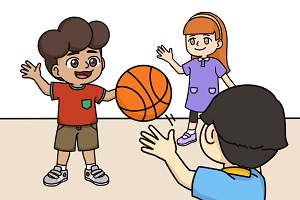
Anxiety is a feeling of worry about something that might happen.
Anxiety can be a normal response to stress, but it can sometimes become overwhelming or last for longer than expected. It might affect the way your child reacts to everyday events and their enjoyment of life.
We know that there is a link between attention deficit hyperactivity disorder (ADHD) and anxiety. Children with ADHD are more likely to feel anxious than other children.
This may be due to:
- genetic factors
- neurobiological differences in children who have ADHD (how their brain and nerves work together to affect how they think, feel and act)
- extra challenges or stress because of their ADHD symptoms.
Speak to your doctor if you are worried that your child’s anxiety is affecting their:
- everyday life
- relationships and friendships at home and at school
- learning at school.
Find out how you can help your child if they are experiencing anxiety:
Depression, anxiety and stress | Raising Children Network
Anxiety - primary school aged children | Kids Health Info
Summary
- Children who have difficulties with attention, regulation and concentration can sometimes have difficulty with their speech, language and communication.
- It is important to check that your child's speech, language and communication skills are appropriate for their age level.
- Difficulties in any of these areas can affect their learning and the way they interact with others.
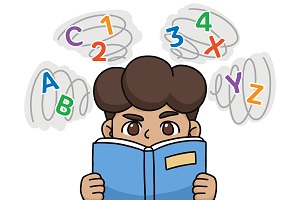
Children who have difficulty with attention, regulation and concentration can sometimes also have difficulty with their speech, language and communication.
Children may have difficulties with one or many aspects of communication such as:
- understanding what others say
- using language to put their thoughts into words
- using words, gestures and body language to interact socially with others
- using the correct sounds when they speak.
They may also experience:
- stuttering
- vocal issues, such as speaking with a hoarse voice.
These difficulties can make it hard for them to:
- follow instructions
- tell others what they want and need
- understand and express their emotions
- make friends
- learn new skills at school (like reading and writing).
It is important to check how your child’s speech and language skills are developing, and how their learning is progressing at school.
If you are worried about your child’s speech, language or communication skills, you can talk to:
- your child’s teacher
- your child’s GP
- a school health nurse.
Explore the links below to better understand speech and language development:
Language development 4 – 5 years | Raising Children Network
Language development 5 – 8 years | Raising Children Network
Explore the links below if you are worried about your child’s learning at school:
Learning: primary and secondary school years | Raising Children Network
Summary
- Working memory is an important mental skill.
- It helps us to follow instructions, keep up in conversations, complete tasks and learn.
- Some children with ADHD experience difficulties with working memory.
- You can help children by simplifying instructions, giving reminders, breaking big tasks down into smaller ones and finding ways to help them be more organised.
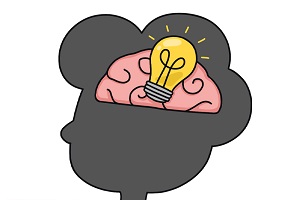

Working memory is the mental skill that helps us hold information in our mind and use this information as we need it. Our working memory helps us throughout the day.
For example, it helps us remember what has been said so that we can have a conversation.
Working memory difficulties can make it harder for children to follow instructions, keep up in conversations with their friends, and learn literacy and numeracy skills.
Ways to support your child’s working memory
- Reduce mental load where possible, have regular routines so your child knows what to expect and doesn’t need to remember new things each time.
- Break tasks into small steps by giving one instruction at a time. Instead of saying, 'Go get your shoes, backpack, and lunchbox', try, 'Please get your shoes.' Once they do that, give the next step, 'Now grab your backpack please'.
- Use pictures or show your child what they need to do when you give instructions. A morning checklist with pictures of shoes, backpack, and lunchbox can help a child remember what they need to do.
- Reduce distractions when giving instructions or teaching something new.
- Use timers, alarms, or apps to remind your child of what they need to do.
- Use acronyms, songs, or rhymes to help your child remember new information.
- Find ways to help your child be organised. For younger children, you may want to label containers so they know where to put their belongings. For older children, consider using systems that help with organisation at school such as regular use of a homework diary.
What’s the evidence for computer-based memory training?
Current research doesn’t strongly support the effectiveness of computer-based memory training programs.
This means we don’t know if they improve children’s real-life thinking, learning, or attention skills.
There needs to be more research before we can work out if computer-based memory training is helpful for children with ADHD.
Summary
- Children with ADHD can sometimes find social situations difficult.
- They might struggle with things like taking turns, reading body language, staying on topic in conversation, or managing big emotions when playing with others.
- These challenges can make it hard for them to make and keep friends.
- Social skills take time to develop, but you can help your child learn these skills in everyday situations.
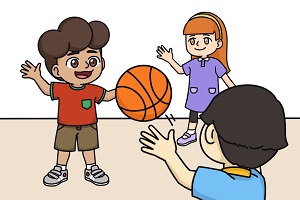
How to support social communication skills
- Practise conversation skills by playing simple games where you take turns.
- Teach everyday conversation starters by modelling use of common phrases like 'Can I play?' or 'What do you want to do?'
- Act out different social situations with toys or puppets so your child can practise how to respond.
- Notice when your child uses their social skills and give them specific praise about what they did well. For example, 'That was great how you asked Sophie what she wanted to play' or 'I really liked how you waited for your turn in the game'.
How to support emotional regulation skills
- Use words and pictures to help your child understand their own emotions and how others might be feeling.
- Teach calming strategies such as deep breathing, squeezing a stress ball, or going to a place that makes them feel calmer when they are experiencing a big emotion.
- Prepare for social situations by talking about what to expect before events like parties or playdates.
- Encourage your child to pause and think before reacting in frustration.
Other ways to help
- Keep playdates short and help your child choose activities with clear rules.
- Show your child how to be a good friend by listening, taking turns, and using kind words.
- Use pictures and stories to help your child understand what to do in different social situations.
- Share ideas and strategies with teachers and other adults.
Explore the links below for more ideas on how to support your child’s social skill development.
For younger children:
Conversation skills for children | Raising Children Network
Children with ADHD: friends & friendships | Raising Children Network
Friends and friendships: school-age children | Raising Children Network
For older children:
Teens communicating & relationships | Raising Children Network
Videos:
Social skills for children: webinar | Raising Children Network
Peer pressure and teenagers: perspectives | Raising Children Network
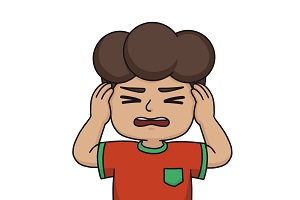
Children with attention, concentration and regulation difficulties, may experience sensory processing differences. This means they may be more (or sometimes less) sensitive to sensory information like noise, touch, smells or movement. This can make some environments, tasks, experiences or daily routines feel overwhelming.
You might notice that your child avoids or is overwhelmed with some sensory input. They may avoid certain textures, become upset in noisy or busy places, or move all the time, even when they are sitting.
Understanding how your child responds to sensory input can help you create a more supportive environment.
To learn more about sensory processing and how it may be affecting your child, visit:
Summary
- Children who have difficulty with attention, regulation and concentration can sometimes also have differences in the way they move their body.
- They might trip or fall more often than other children, find it difficult to dress themselves, find handwriting difficult, or have challenges playing sports.
- There are things that you can do to help your child with activities requiring movement and coordination.
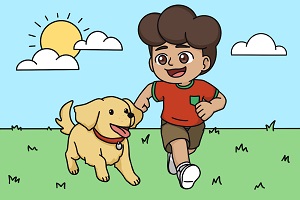
Children who have difficulty with attention, regulation and concentration can sometimes also have differences in the development of their movement and coordination.
You might notice that your child:
- is clumsy or moves in a different way to other children their age
- often trips or bumps into things
- has trouble getting dressed or putting their shoes on
- finds handwriting difficult
- has trouble with throwing and catching
- gets tired more quickly than other children
- may have difficulty with team sports that require coordination and teamwork.
What can you do?
Gross motor activities
Gross motor skills are whole body movements, for example, walking, running or jumping.
It’s important for your child’s wellbeing and gross motor development that they do physical activities that they enjoy. Community sports and activities, like exploring a playground or swimming, help them to build strength, coordination and balance.
There are many community sporting programs that focus on skill development in a range of team sports.
Your child may prefer individual physical activities such as gymnastics, swimming, martial arts or parkour.
Explore the links below for ideas to try with your child at home or in the community
Physical activity for school-aged children | Raising Children Network
Physical activity for teens | Raising Children Network
Screen time and physical activity | Raising Children Network
Fine motor activities
Fine motor skills are the smaller movements children make with their hands and fingers. These skills are needed for activities like writing, using a knife and fork, and using buttons and zips.
Provide fun opportunities for your child to develop arm, hand and finger strength and coordination. This could include:
- playing with craft materials
- drawing
- playing games and doing puzzles
- building with construction toys
- helping with tasks around the house such as opening containers, packing their school bag and putting away the groceries.
Explore the links below for ideas to support your child’s fine motor skills at home:
Getting dressed: helping children learn | Raising Children Network
How to tie shoelaces: teaching kids | Raising Children Network
Handwriting skills for children | Raising Children Network
Who else can help?
If you are worried about your child’s gross or fine motor skills, you can talk to:
- your child’s teacher
- your child’s GP
- a school health nurse.


